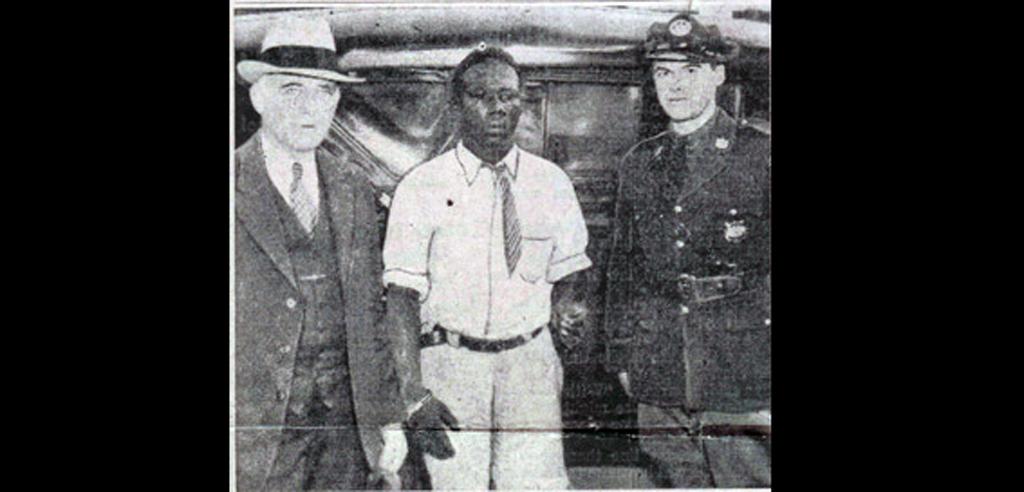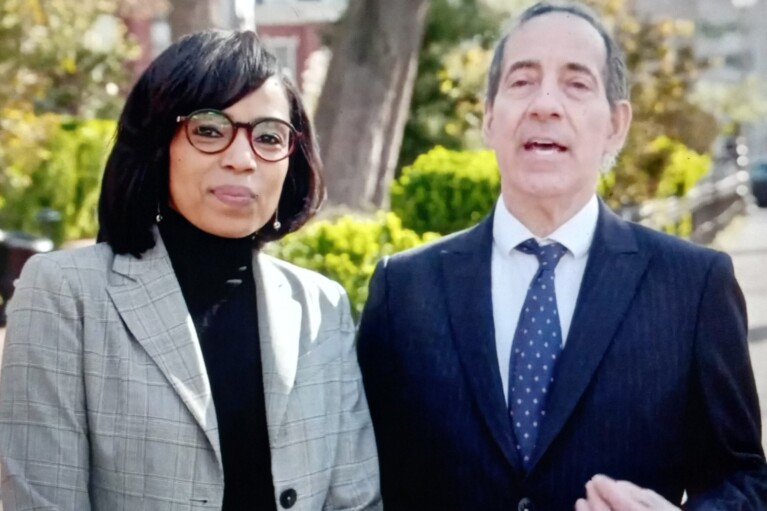State Lawmakers Propose Commission to Confront Dark History of Lynchings in Maryland

The last documented lynching in the state of Maryland took place on Oct. 19, 1933 in Somerset County.
It was a brutal affair, according to Will Schwarz, president of the Maryland Lynching Memorial Project.
George Armwood, a mentally-ill 23-year-old black man had been brought to a jail in Princess Anne after being accused of attacking an elderly white woman.
Instead of waiting for the wheels of justice to turn, Armwood was dragged from his cell, beaten, stabbed, tortured and mocked by a mob of men, women and children. He was paraded through town, hung from a tree next to the judge’s house until he was dead and then had his lifeless body dragged through the streets until he was hung again in front of the courthouse and set afire as people danced and sang around his burning body, Schwarz said.
“The injuries inflicted on generations of black Americans are not scars. They’re open wounds. And it’s up to us to heal them,” Schwarz told the House Judiciary Committee on Tuesday afternoon, as he advocated for a bill to create the Maryland Lynching Truth and Reconciliation Commission.
Sponsored by Del. Joseline A. Peña-Melnyk (D-Prince George’s, Anne Arundel), House Bill 307 would establish a commission to undertake a years-long mission to document the known – and so far unknown – incidents of lynchings in the state of Maryland. At least 41 black men are believed to have been killed by lynch mobs in the state, Peña-Melnyk said Tuesday.
And still today, there are thousands of Marylanders who were alive on the day that Armwood was killed, Schwarz said.
“We can’t change history and we can’t change the choices that were made by others who came before us. But we can’t turn our backs on it anymore either,” Schwarz said. “Our responsibility today is to stand up and confront the history of racism in our state, to recognize and right the wrongs of the past, to expect justice for all – not just hope for it – and to do what we can as individuals and as a state to ensure that all our people can live their lives with dignity.”
The commission, which would work until 2022, would hold regional meetings where lynchings of an African American by a white mob has been documented. The commission would also research cases of racially motivated lynchings that are not documented but are brought to the group’s attention.

Del. Joseline A. Pena-Melnyk
Peña-Melnyk, who has been working on the bill since summer, has established partnerships between Bowie State University, the Maryland Lynching Memorial Project and the Maryland Attorney General’s Office to cover the estimated $75,000 cost of creating the commission.
The bill has 57 cosponsors, among them a handful of Republicans, including House Minority Leader Nicholaus R. Kipke (R-Anne Arundel).
Peña-Melnyk said the recent discovery of nooses – at Patterson Park in Baltimore, at Chesapeake Bay Middle School, Crofton Middle School and in other communities – shows why such a commission is needed.
“This is a great bill for us to send a message that the lives of the 40-something people, or more, really matter,” she said. “Given the current divisiveness in this country, this is really the right thing to do.”
Chris Haley – the nephew of Alex Haley who authored “Roots” and an eighth-generation descendant of the slave Kunta Kinte, that book’s central character – called lynching “perhaps the most undignified, terrifying and violent act of murder any human being was ever made to experience.”
He said lynching was used as a tool of racial terror and punishment against African Americans and he would support any effort to learn more about the victims of lynchings, with the hope that the commission’s work might help their souls find peace.
Nicholas Creary, a former history professor at Bowie State now working at the University of Iowa, said the bill would, “in the spirit of restorative justice, allow the victims and their families to participate in the closure of these open murder cases.”
He asked lawmakers in the committee room on Tuesday to rectify gross miscarriages of justice from the past.
“It’s not a dredging up of the past,” Creary said. “You have at least 40 open murder investigations that need to be closed.”
Former Democratic gubernatorial candidate and past president of the NAACP Benjamin T. Jealous testified in favor of the bill on Tuesday, telling committee members about meeting with families that have struggled with dark histories on both sides of lynchings, first as a young reporter and later as an activist.
“I’ve sat with family members of those who had been lynched and it absolutely haunts them. But I’ve also sat with family members of those who have lynched and it haunts them, too,” Jealous said.
“…The truth and reconciliation process for our state on this issue could not be more timely,” he said, noting the hate-based stabbing death of Richard Collins III near the University of Maryland in 2017. “…This issue is about 1933, it’s also about 2018, 2019 and next year. So let’s get on with healing. This is about all of us.”
Schwarz noted that some Maryland communities are already working to address the history of lynchings. The Montgomery County Council passed a resolution creating a local remembrance and reconciliation commission last month. In 2018, the Annapolis City Council passed a resolution detailing lynchings in the city, supporting national remembrance projects and apologizing for the past killings.
Phillip Caroom, an attorney and retired Anne Arundel County Circuit Court judge, noted that the last lynching in Anne Arundel County occurred two blocks outside the committee room windows, “basically in eyeshot of where we sit.”
On Dec. 21, 1906, Henry Davis was taken from the sheriff’s lock-up, where he’d been held for an alleged assault, dragged through town and lynched on College Creek, Caroom said.
“What did the legislature do?” he asked. “A month later you convened and did nothing. I strongly encourage us to do something about it at this time.”




 Creative Commons Attribution
Creative Commons Attribution